10 not-to-miss books – Focus on slow working
Here is our selection of 10 of the best business books published so far in 2019 to add to your summer reading list. New this year, a topic as a red thread for this selection: Slow Working. Inspiring and fascinating topic, we are certain that at least one of these books is right for you.
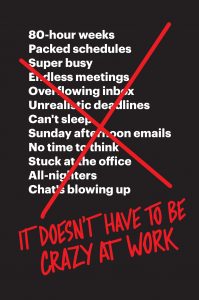 It Doesn’t Have to Be Crazy at Work!
It Doesn’t Have to Be Crazy at Work!
by Jason Fried and David Heinemeier Hansson,( Harper Collins 2018)
Is your work environment extremely tense, spinning quickly out of control and leaving everyone exhausted? After the success of Rework a decade ago, the founders of Basecamp have pinpointed seven clichés that contribute to excessive and ineffective stress. Stop the hellish (and unnecessary!) pace at the office. By combating it, you can give your teams some performance-enhancing peace of mind. “The bible of slow working” (Technikart).
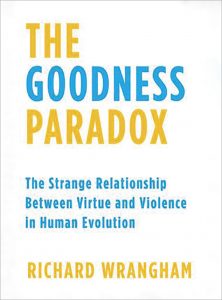 The Goodness Paradox
The Goodness Paradox
by Richard Wrangham, (Pantheon 2019)
Wrangham’s theory is that over the last 250 million years humanity has become more and more peaceful in its daily interactions while its ability to plan devastating violence remains intact. He advocates, with force and persuasion, in favor of social tolerance and the control of the wild dissensions that still plague us today.
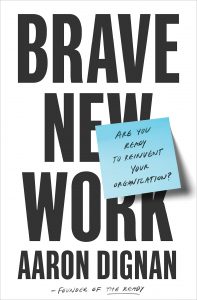 Brave New Work
Brave New Work
by Aaron Dignan, (Portfolio Penguin 2019)
When fast-scaling startups and global organizations get stuck, they call Aaron Dignan. He’s found that nearly everyone, from Wall Street to Silicon Valley, has the same frustrations: lack of trust, bottlenecks in decision making, siloed functions and teams, meeting and email overload, tiresome budgeting, short-term thinking, and more. In this book, he reveals his proven approach for eliminating red tape, dissolving bureaucracy, and doing the best work of your life.
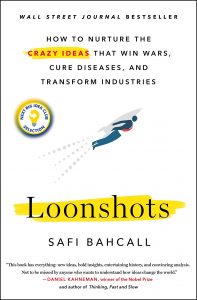 Loonshots
Loonshots
by Safi Bahcall, (St. Martin’s Press, 2019)
Though it doesn’t have much to do with slow working, it’s one of the best sellers of the year. Many companies known for their sense of innovation end up seeing their inspiration dry up. According to Bahcall, this is not inevitable and not a question of culture, but of knowing how to adjust the structure of one’s organization.
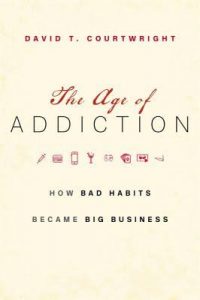 The Age of Addiction
The Age of Addiction
by David T. Court wright, (Belknap Harvard, 2019)
We’re living in an era where temptations assault us at every moment of the day — and each of those can become an addiction. From binging on TV series or sugary snacks, companies hijack our brain pathways, and the only way to avoid it is to understand how it works.
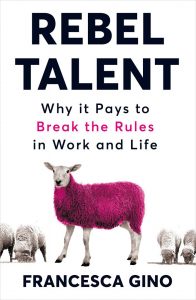 Rebel Talent
Rebel Talent
by Francesca Gino, (Dey St., 2019)
We like to think of rebels as sowers of chaos. But rebels also have changed or are changing our world for the better, by defying the status quo, rules, and boundaries. Author Francesca Gino has encountered many rebels who are changing organizations by thinking outside the box. She writes that the future belongs to rebels, and that there’s one in all of us.
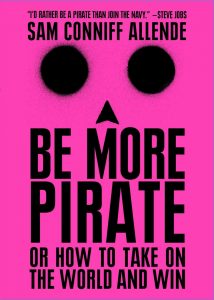 Be More Pirate
Be More Pirate
by Sam Conniff Allende, (Penguin Business, 2019)
Being a pirate in our modern society means changing the world for the good, by reinventing society instead of simply rejecting it. This book takes the best pirates strategies of the ancient and modern world (from Blackbeard to Elon Musk), revealing how to apply them in daily life.
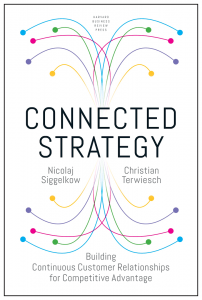 Connected Strategy
Connected Strategy
by Nicolaj Siggelkow and Christian Terweisch, (Harvard Business Review, 2019)
What if your company could anticipate customer needs as they arise, or even before? It’s possible, say the authors, thanks to the emergence of connected strategies. Now, companies can turn episodic transactions into long-term relationships and deliver more value to customers.
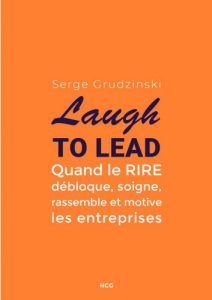 Biased
Biased
by Jennifer Eberhardt, (Viking 2019)
The Next Big Idea Club: “Stanford professor and MacArthur ‘genius’ grant recipient Jennifer Eberhardt reveals how unconscious bias impacts daily life in schools, offices, and neighborhoods everywhere, offering both eye-opening reflections on the problem and science-backed wisdom toward a solution.” Though this book does not address slow working, take the time to slow down and think about it.
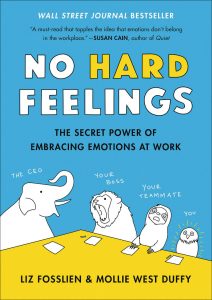 No Hard Feelings
No Hard Feelings
by Liz Fosslien and Mollie West Duffy, (Penguin Random House UK, 2019)
And here is another of the year’s bestsellers. If there is one area where artificial intelligence cannot outclass man, it is emotions. Far from leading engendering erratic and irrational behavior, emotions, if you know how to recognize and sort them out, can be powerful motivators of both individual performance and collective commitment. Give them the importance they deserve.
© Copyright Business Digest - All rights reserved

